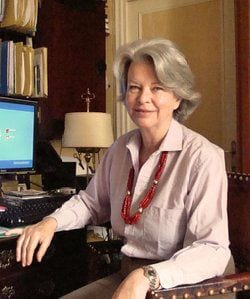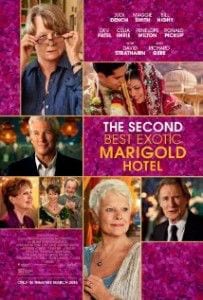What You Learn in Your 60s
By Claude Forthomme (Nougat) for the NABBW
 Starting in 2014, there was a rash of Baby Boomer celebrations, from the Beatles appearing on the Ed Sullivan Show to President Kennedy’s assassination.
Starting in 2014, there was a rash of Baby Boomer celebrations, from the Beatles appearing on the Ed Sullivan Show to President Kennedy’s assassination.
Possibly because 2014 was a milestone of sorts, that was the year that all boomers, even the youngest ones born in 1964, passed their 50th year.
As a result, most boomers are now facing the “second act” in their lives. And celebrating. Right or wrong, it’s all about Baby Boomers! The time has come to consider what it means for our generation, and, in passing, dispelling some serious misconceptions about Baby Boomers.
So here, in a nutshell, is what you learn in your 60s:
- The biggest transition is realizing that you’re the “sandwiched generation.” In spite of all the hype about how rebellious Baby Boomers have shaped History, the truth is very different. You find you’re not into politics and big events. You are responsible for both your old parents and your children. The parents may not be in their dotage quite yet, but they need assistance. The children, in some cases may be still toddlers (as a result of the fashion for late marriages), but for most of us, they are grown-up but not necessarily into the labor market. Actually, with the onset of the 2008 Big Recession, your kids may be home with you and struggling to find a job. As parents, we are happy to have them around, but it’s impossible not to worry about their future.
- It’s wrong to view Baby Boomers as a single, homogeneous generation. For those in their 50s today, there is no direct memory of Vietnam, they were small kids when it happened. Some of them don’t even want to think that they belong to the Baby Boomer generation. The others who are older were crushed by the war and their world view was changed forever. War veterans are the ones who know in their heart the real, life-changing burden of war memories. In some ways, a Vietnam veteran is closer to a millennial who has fought in Iraq and Afghanistan than to someone in his own generation who hasn’t. Ditto for other countries like the UK, France or Italy that have been involved in wars overseas.
- You’ve finally learned to distinguish the good from the bad — and you know the distance between the real world and the ideal one. The distance is big and no one can pull a fast one on you. But beware, don’t be too dystopian! There’s a trap awaiting you when you get into your 70s: old men (and women of course) often sound condescending as they tell you about a world conspiracy or disaster that will bring down world order as we know it.
- There may be no “soul mates,” you’ve known there weren’t since your 40s, but you can distinguish between your real friends who will help you and those who won’t. This is perhaps the most surprising thing: it’s still possible to make new friends in your 60s and 70s. As American journalist Pamela Druckerman put it, “you find your tribe” (it’s something that starts happening in your 40s) and that “tribe” never stops growing.
 You learn more about yourself, more than you ever thought possible. The last time you learned so much was back when you were in your late teens and early twenties. That’s exhilarating. And frightening. For us writers, that transition to greater self-knowledge is a fantastic fount of inspiration to write novels like Louis Begley‘s “About Schmidt” series or Deborah Moggach’s “The Best Exotic Marigold Hotel” – the latter was such a success that it has been brought twice to the screen, first in 2012 and then the “Second Best” follow-up, in studios now. It’s also something that TV series tap into, for example “Breaking Bad”, “House of Cards” or the Danish series “Borgen” all feature Boomers.
You learn more about yourself, more than you ever thought possible. The last time you learned so much was back when you were in your late teens and early twenties. That’s exhilarating. And frightening. For us writers, that transition to greater self-knowledge is a fantastic fount of inspiration to write novels like Louis Begley‘s “About Schmidt” series or Deborah Moggach’s “The Best Exotic Marigold Hotel” – the latter was such a success that it has been brought twice to the screen, first in 2012 and then the “Second Best” follow-up, in studios now. It’s also something that TV series tap into, for example “Breaking Bad”, “House of Cards” or the Danish series “Borgen” all feature Boomers.- On a light note: Now you can buy those tight jeans, you’ve learned to control your weight (about time too!); and if you can’t, well, you don’t care.
- On a yet lighter note: You see the good side of things more easily than before. You’re more optimistic (I know I am!) You’ve learned to appreciate the simple things in life and honest friendship – perhaps that’s because now you trust your judgment, you recognize your true friends, and you know you’re not going to live forever. In short, you think less of yourself and more of others, now you know how to be happy.
What would you add to this list? Please share your experience!
Claude Forthomme is an economist (Columbia University graduate) and worked 25 years for the United Nations, ending her career as FAO Director for Europe.
Since 2004, she has published five novels and one collection of short stories under the pen name Claude Nougat, including one Boomer Lit novel, “Crimson Clouds.”
Find her Amazon author page here.



Leave a Reply
You must be logged in to post a comment.